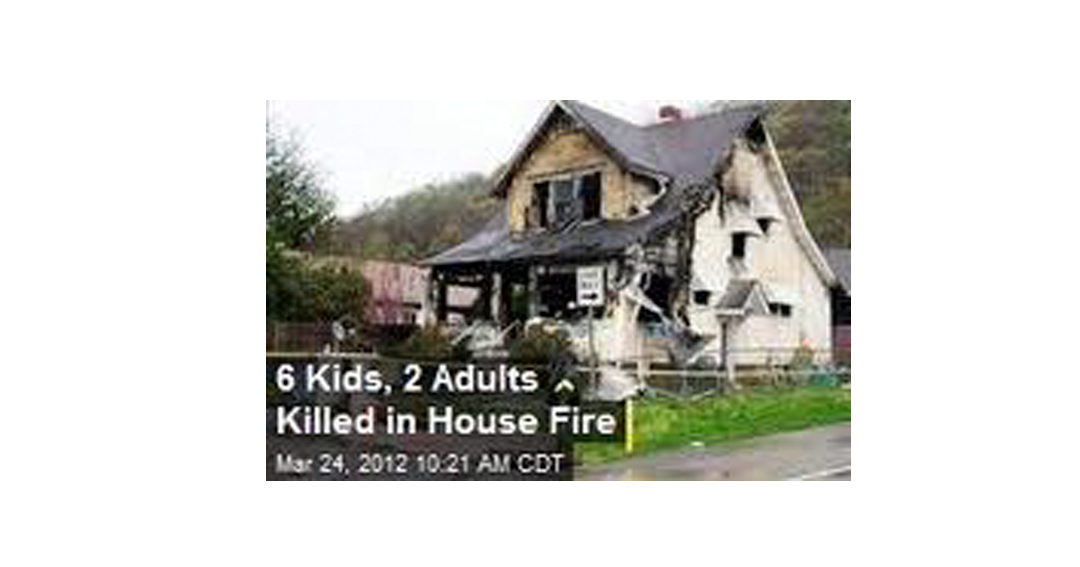
by Tommy Smith | Aug 9, 2017 | Child Safety Tips
Summer Vacations—Summer Security Tips. Summer time is a favorite time for family vacations. It’s a time to build family memories. The bad guys also know summer time is when families will be away from their homes. You probably have a check list of items for planning your vacation. Add to your list, these items to make your home less of a target for the burglars.
- You should stop the delivery of your newspapers and mail. If you are scheduled to receive a package, have a neighbor pick it up from your door
- You should close blinds so a burglar cannot see into your home.
- If you are going to be gone for an extend vacation time, have someone cut your grass so your home looks lived in.
- Before you go, lock all doors and windows, including your garage service door and sheds or outbuildings. It’s a good idea to keep some interior and exterior lights on. A rotating timer works very well.
- You want to turn off unused appliances and computers to save energy dollars. This also eliminates items that could cause a fire.
- With your home phone system, switch your phone to a single ring. Do not advertise how long you are going to be gone with your voice message.
- You do not want to advertise your vacation on Facebook or other social media sites. Social media has become a contemporary tool for burglars to identify people who are not at home
- Give a trusted neighbor a key or access so they can check on your home while you are gone.
- In some locations, you can contact your local police department about your vacation schedule. They may send an extra patrol car periodically through your neighborhood.
- If you have a security system, let your system providers know about your vacation plans.
- If you are going to be far away on vacation, it’s a good idea to notify your credit card companies so they don’t deny your charges because of your far away location.
Conclusion Add the above list to your “Vacation to do list” so your home and possession are more secure while on your summer vacation. Then enjoy your vacation!

by Tommy Smith | Aug 9, 2017 | Child Safety Tips, School Security
Summer Children Safety Tips…This is the last in my series of blog posts on ways to make your home safe and secure for the summer months. In previous posts, I have written about.
In this post, I write about summer children safety tips for your children. Did you know that May through August has the greatest number of children injuries and deaths? With children being home for the summer, they have less adult structures and more opportunities for injury. Here are some areas to talk over with your children for their summer safety.
Summer Children Safety Tips
To learn more about any of these safety areas, click on the link to SafeKids. Be safe and make sure your children are safe for the summer.
ALWAYS TEACH YOUR CHILDREN:
To know their full name, age, telephone number, area code, city and province.
How to phone long distance in an emergency, by dialing direct or with the operators assistance.
How to contact you, or another close relative in an emergency. How to contact a trusted neighbor, police, fire or ambulance services and when to make these calls.
When children are home alone they should tell phone callers that you are there, but you are busy and cannot come to the phone. The phoning party can call back later. Teach your child to cut short any phone calls with strangers and hang up the telephone if a stranger continues to talk.
When children are home alone, find out the identity of the person who comes to the door, without opening the door. If a stranger is at the door, teach your children to tell the stranger that your are busy, and he/she should go away and come back later. Teach your child not to engage in conversation with the visitor. If the child feels threatened, teach him to phone an emergency number. Emergency numbers could be your telephone number at work, that of the police or a trusted neighbor who will be home.
Where possible, your children should play and walk with other children.

by Tommy Smith | Aug 9, 2017 | Child Safety Tips, Fire Safety Tips
October 5th through October 11th is National Fire Prevention Week. It is one week where we focus on ways to prevent home fires.
In 2013, there were 1,240,000 fires reported in the United States. These fires caused 3,240 civilian deaths, 15,925 civilian injuries, and $11.5 billion in property damage. Children make up 20% of all fire deaths.
Because of their age, children are especially vulnerable to house fires. Here at ten tips you can use with your children to prepare them for escaping a house fire.
- Escape Route Planning
Designate two ways out of every room, if at all possible. Today’s media rooms (rooms created without windows) can create a particular fire entrapment issue, and parents should evaluate their home and establish a plan in those instances.
- Windows Are For More Than Fresh Air
Make sure that windows are not stuck closed, that screens can be removed quickly, and that security bars can be opened. For parents in particular, if a child’s bedroom is upstairs, they should be able to complete these tasks in the event of an emergency.
- Second Floor Safety
Escape ladders should be placed near second floor windows, and children should practice using them. For extremely young kids, a “mini-exercise” from a first-floor window can at least educate the child as to expectations.
- Feeling Way to Safety
Children should practice feeling their way out of the home in the dark or with their eyes closed. Parents and providers can turn this into a game by blindfolding a child and placing in a room and asking them to feel their way to a designated area. Daycares and child care providers can set it up an obstacle course, and then provide cues and help so that when they reach a designated end point, a special treat awaits! (It could be as simple as lunch served outside!)
- Use Songs to Teach What to Do
Consider teaching a fire escape song to reinforce the need to get out of a burning building. This one can be sung to Frere Jacques: There’s a fire! There’s a fire! Must get out! Must get out! Stay away from fire! Stay away from fire! It is hot. It is hot.
- Smoke Detectors 101
Teach children about smoke detectors, why they are installed, how they work, and the sound that they make. Children need to be able to associate the sound going off with a fire as part of fire safety for kids. Adults should change batteries regularly to avoid having the alarm go off because batteries are running low, and risk frightening a child.
- Out Means Stay Out
Teach children that once they are out of a burning house or building, they must go to the designated place and never, ever venture back in. If someone or a family pet is missing, they should inform a fire fighter or adult. There are too many tragedies that could have been avoided in the cases where an individual who has gotten out safely to venture back in the home or building, only to perish.
- It’s In The Touch
Instruct kids how to check doors to see if they are hot, and if so, how to find another way out. Fire safety for kids includes having them find a towel to use for handling, touching or grabbing items to avoid burns, and to also use the towel or cover to protect their faces and cover their mouths.
- Stop, Drop and Roll
Teach kids what to do in the event that their clothes catch fire. Make sure they understand “stop, drop and roll.” Many a fire-related injury could have been avoided or greatly minimized if a child heeded this advice instead of the natural instinct of running.
Practice Monthly
Practice your escape plan at least twice a year with children as part of fire safety for kids, preferably monthly. Families and providers should also practice fire drills and alter areas affected by fire.
Conclusion
Child care providers, teachers and parents alike should partner together to teach children of all ages, and especially youngsters, about fire safety. Here are 10 tips for teaching fire safety for kids.

by Tommy Smith | Aug 9, 2017 | Child Safety Tips
In a few short weeks, your children will be returning to school. They are excited. You are probably more excited to have them be back in school! Over the next several weeks, I will share with you some blog posts about school security issues with your children, younger children, teenagers and college bound students. Use these tips to make your children more secure in their school environment.
School Security for Younger Children
Plan to Discuss Security
You organized your children’s school supplies. You bought them new school clothes. Have you taken the time to talk about school security issues? Set aside some time at the dinner table to talk with your children about their security. You may find it helpful with younger children to create a list of do’s and don’ts’ about security and post them in a prominent place.
- Know Their Important Information–A child should know their phone number, address and phones numbers they can use to contact you. Do they know how to use 911? They should also have the phone number of a trusted adult in case they cannot make contact with you.
- A Daily Routine–What are your children’s routine when they are back in school? It’s important to establish a normal routine for where they will be before, during and after school. Routines will give you much more peace of mind because you know what to expect.
- Stranger Danger–Teach your children never to talk or accept gifts from strangers. A stranger is anyone your child does not know. They should also know the difference between good and bad strangers. Good strangers are people such as store clerks or other authority people who belong and can assist your child.
- Children’s Rights–Children are often intimidated by bigger children or adults. They have rights and do not need to endure bullying or any other forms of abuse. Remind them that it is ok to tell the teacher or principal is something is wrong. They have a right to call you as parents.
- Walk Through Your Security Measures–You have probably already installed security measures in your home or even installed a home security system. You know how it operates, does your child? Show them the locks, deadbolts, alarm system items so they are comfortable using them and know how they operate. Don’t take these security details for granted.
Plan a Walk Route
If your child is a walker, you should plan the route with them. You can test it out with your child and have some fun with it. Remind them to obey all traffic signs and safety patrol people. If they ride their bike to school they should wear a helmet and not use headphones while riding their bike. Establishing a buddy system is also a smart idea for walking to and from school.
School Computers
Check with your school to see that their computers block access to unwanted computer sites. Cyber-bullying can occur. Far too often we hear stories about children making a new friend on the internet only to find it was not a friend. Talk to your children about their computer use.
Latch-Key Children
If your child will be home alone for several hours, have a discussion about your rules. Who can be in the house? Never open the door for strangers. What should they do if there is a fire? Who can they call in the neighborhood for help? Where should they go if things don’t seem right at home? As the school year progresses, revisit these rules with your child about situations they when they are alone.
Security System
If you have a situation or children that need greater security, consider a home security system. With today’s wireless systems, you can install video monitors, open and lock doors from your smart phone, arm and disarm your security system and generally keep a close eye on the children at home right from your phone. You can be two places at one time! Give us a call if you need help with a home security system.
Conclusion
By following some of these tried and tested security tips you will have greater peace of mind as your child embarks on another school year. Thanks to Lloyd Security for some of these School Security for Young Children tips.

by Tommy Smith | Aug 9, 2017 | Child Safety Tips
Making Summer Safe for Your Children
Memorial Day marks the unofficial start of summer. Soon your children will be out of school. Summer will bring a family vacation. The months will be fill with your children enjoying outdoor activities.
As a parent, you also know the summer brings additional security and safety concerns. After all, the children will not be under the supervision of school systems for the majority of their day. Many children will be home alone during the summer. How can you make the home a safer place for them? Summer brings sun and heat. How can you protect your children with their outdoor activities? Each year, emergency departments treat over 200,000 playground injuries for ages 14 and under. How can you make these summer activities safer for your children?
As we start the summer season, I will devote my next several posts to summer safety tips for your children. These will help give you greater peace of mind and a safer summer season for your children.
Family Discussion on Summer Expectations
One tip many families have found useful is to have a family discussion about summer safety expectations. Each family has a different family situation. It’s important to establish boundaries and expectations with your children about their summer months.
Start by having a discussion as parents about your children’s summer rules and expectations. Then have a family discussion with your children about your expectations, the rules and the children’s boundaries. Get their input about your expectations. When they take ownership of the expectations, they become more responsible for them.
You will need to have regular reminders about the rules and expectations. There is a reason for the popular saying, “In one ear and out the other.” Children are not long-term thinkers. They need frequent reminders. This is how they learn.
Some parents use posted notes or a white board to remind children of the rules and expectations. Others have found that it is a good idea to review the week’s activities and expectations at the start of each week.
If mistakes are made, there will be mistakes, make these a teachable moment. Review the situation and what could have been done differently. We all learn from our mistakes. Children are no different.
Conclusion
Summer safety and security for your children presents its own set of challenges. It’s a more unstructured season. Help your children remain safe during the summer so they create the wonderful summer memories are so important to growing older. Watch for more specific summer safety tips for your children in the next blog post.
*Picture from the CDC*

by Tommy Smith | Aug 9, 2017 | Child Safety Tips
I am continuing my series of posts on summer safety tips for your children now that they are no longer under the supervision of the adult school system. Here are three important areas to talk over with your children about these summer safety concerns.
Water Safety
Drowning is responsible for more deaths among children ages 1-4 than any other cause except birth defects. Two to three children die every day from drowning.
Make sure that children are always supervised around any pool or water.
Teach your children how to swim. It is one of the greatest safety gifts you give can to them. Check with your local Red Cross or other organizations about swimming instructions.
If you have a pool, make sure it is fenced in on all four sides.
If you do any boating, children should always have on an approved jacket preserver.
Heat and Sun Safety
Heat-related illness occurs when the body’s temperature is overloaded. Infants and children up to 4 years of age are at greatest risk.
Never leave infants, children, or pets in a parked car, even if the windows are cracked open.
Infant and children should wear loose, light colored, lightweight clothes
Protect children’s skin with proper sunscreen.
If a child shows symptoms of heat related illness, get immediate care.
Playground Safety
Each year more than 200,000 children ages 14 and younger are treated for playground-related injuries.
Check to make sure that playground surfaces under equipment are safe, soft, and well maintained.
Small and young children need supervision around playground equipment.
Make sure the playground equipment is the appropriate level of play for your children.
Your children should wear the right protective equipment for their sport or recreation activity.
Conclusion
If you follow these simple tips for children’s summer safety, their summer will be safe. Be sure to have a discussion with your children about these tips. Following these tips will give you greater piece of mind. In my next post I will share some thoughts about summer home safety tips.







